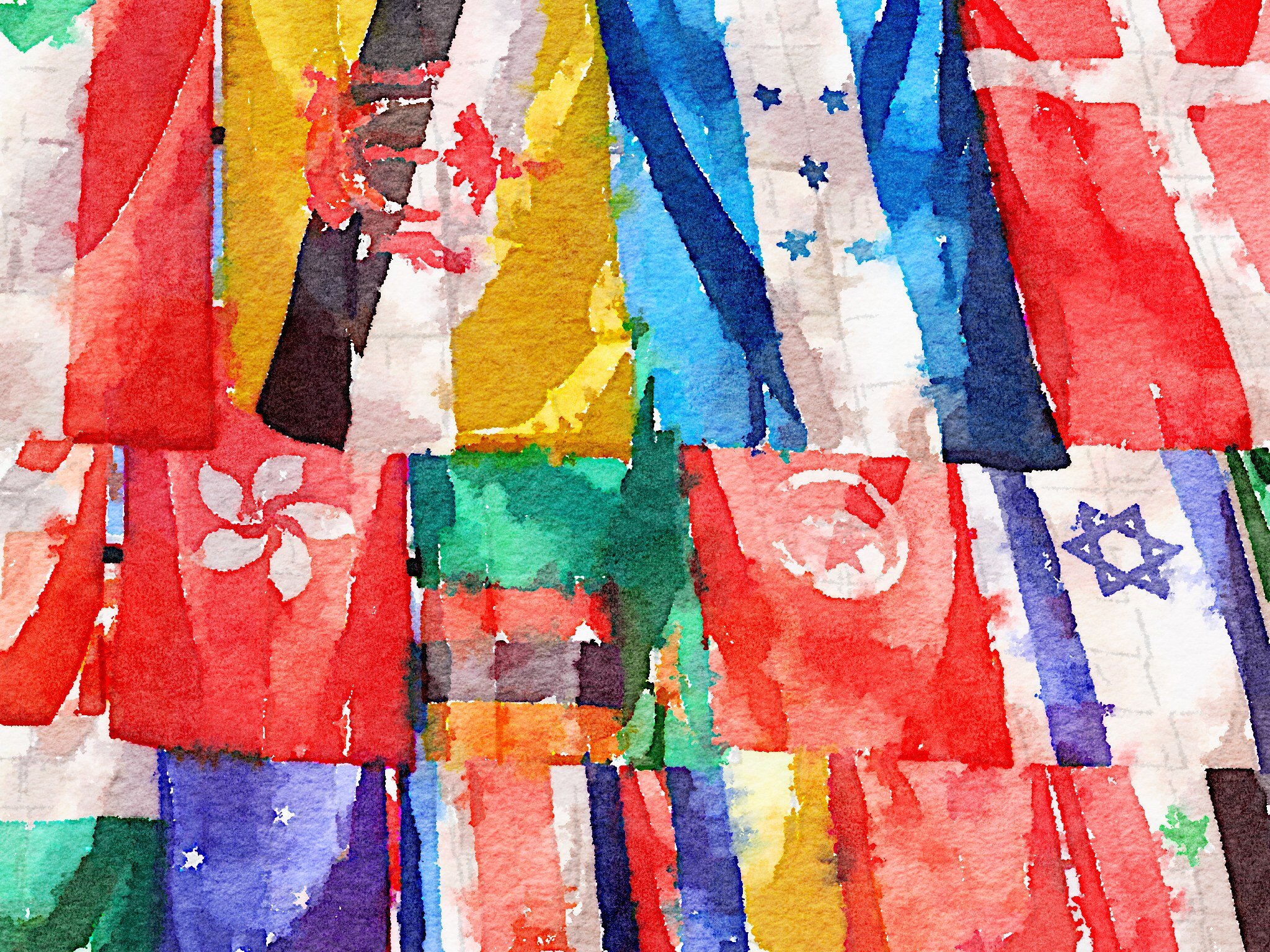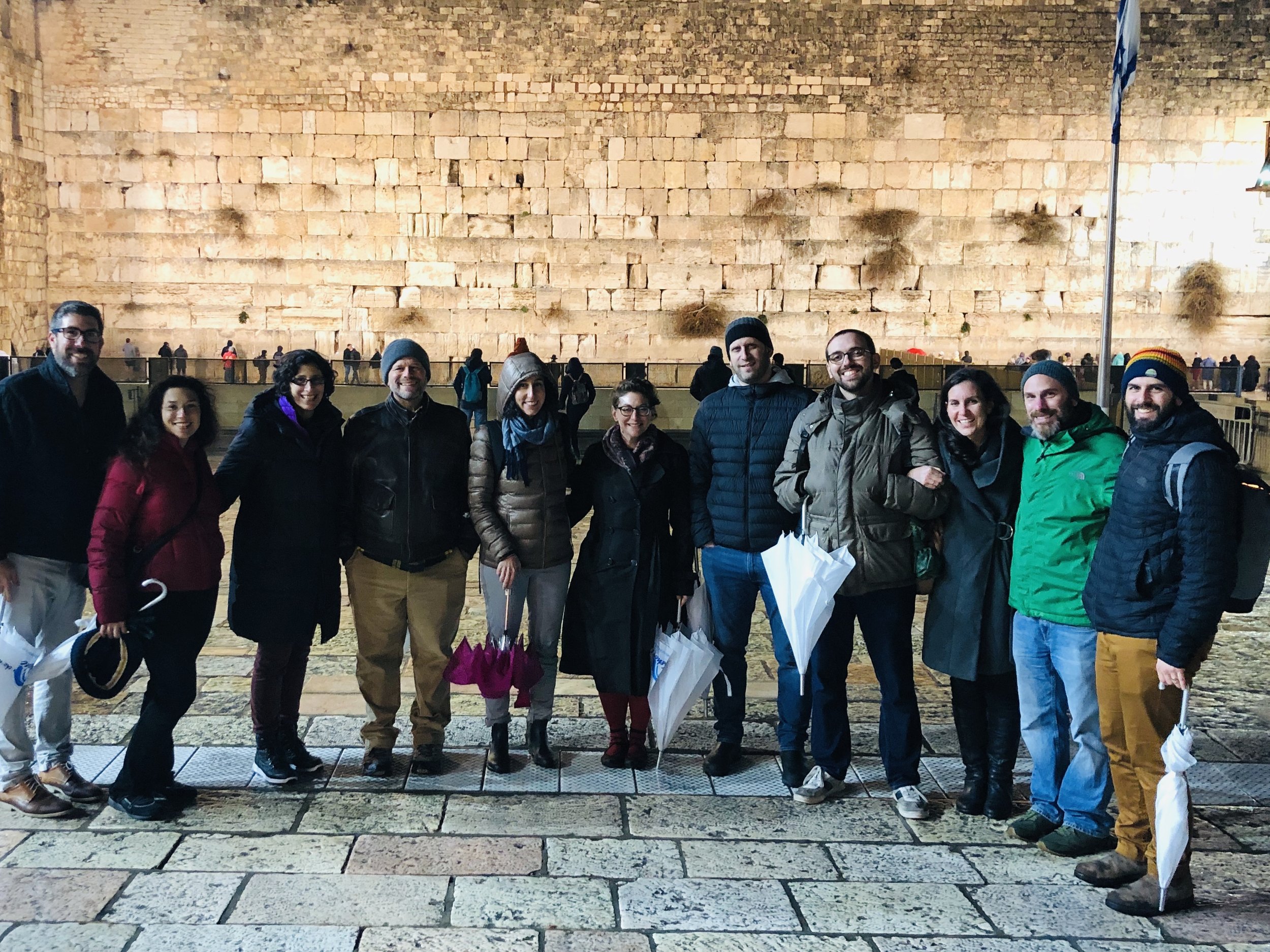My Civic had been nudging me for the last two weeks. Like most modern cars, it reminds me with increasing frequency and urgency when a maintenance interval approaches. Finally, the vehicle would brook no further deferrals or delays. A yellow warning light came on and stayed on insisting that an “A17 Service” was required now! I booked an appointment for the next day and drove the car to the Honda dealer. (Don’t judge, I trust the work they do at my dealer. I know I am paying too much).
I like to wait while the service is being performed. The waiting room is clean and nice. There is free coffee and doughnuts, solid wi-fi and little cubicles if you want to work. So, I declined the proffered ride back home or to the metro and settled in for an hour or two while my oil was changed, my tires rotated, and my brake lines flushed.
A few minutes later a young woman came in with her little girl. The woman was on the phone and I quickly realized that she was speaking Hebrew. Of all the languages I don’t speak, Hebrew is the only one that affects me emotionally the moment I hear it. Hebrew speakers know that almost no one outside of Israel will recognize the language never mind speak it. To acknowledge to a Hebrew speaker that you even recognize the language is to effectively declare to them that you are a fellow Jew.
I don’t always say something when I hear a person speaking Hebrew but sitting next to this mother in the waiting room, I felt a sense of kinship. After all, we were both Honda owners.
As she hung up her call, I turned to her and asked, “How is your family?”
It took a second for her to process my question. I could see the wheels turning as she said to herself: this apparent stranger heard me speaking Hebrew, knows I am Israeli, he is probably a Jew (he sure looks like one) and is asking about my family back home because he cares about what is going on. He cares about me.
And then she told me. For about 10 minutes she told me about her family, who she knew that had been murdered, who had been kidnapped, who was in the Army, what part of Israel she was from, and what was happening there. I said little except to present my credentials as a frequent visitor and member of the tribe. In other words, I am an American Jew who has personal connections to Israel and cares about what happens there. But that was established in a sentence or two. Mostly I just listened. Her Uber arrived. The conversation ended. She and her little girl left. No names or particulars about either of us were exchanged but I felt a connection, nonetheless. I hope that she at least took away a feeling that American Jews care about Israel. That we see her struggle and pain as ours too.
As I mentioned in my last post, I have been surprised by and grateful for non-Jewish friends who have reached out with words of comfort and support. Some know the deep connection to Israel that I feel while others don’t necessarily know but assume a bond just because I am a Jew.
For the most part these have been overwhelmingly kind and supportive. But one or two have been unintentionally (I think) thoughtless, even cruel. If you are not Jewish but want to express empathy for me or for your other Jewish friends who cherish Israel, here are a few things to consider if you want to avoid pushing some buttons. (If you actually are trying to provoke, consciously or unconsciously, perhaps examine your motivations carefully and consider not doing that right now.)
Here are some things to know about me and Israel. These may or may not be true about your other Jewish friends. Although many American Jews will find resonance with what I say, the American Jewish community is diverse to say the least. Perhaps you’ve heard the old saw, “Two Jews, three opinions.” Try to understand with whom you are speaking and listen rather than assume you know what they are thinking and feeling.
Here’s where I’m coming from.
I don’t care how many articles you’ve read on the internet or in the New York Times or listened to on NPR, I know more about Israel than you do. I know more about Jewish history than you, and I know more about the conflict than you do. I’ve been to Israel more than 17 times including having lived and worked there for three months. I’ve been to every part of the country including the part that is under Israeli occupation. I’ve led 14 Birthright trips, a ten-day trip around Israel with 40 college students and 8 Israelis of similar age. Each of these trips is a history lesson in itself. I’ve had right wing guides and lefty guides. I’ve met and talked with Jewish settlers in the West Bank and with Palestinians. I’ve studied Israeli and Jewish history both formally as part of my master’s degree program and informally. I spent a year as a Shalom Hartman Institute Fellow learning with Jewish and Palestinian scholars about the conflict and its history. I’ve also been to several Islamic and Arab countries, including Egypt, Turkey, and Morocco, and listened to people there and learned about the conflict from their perspective.
I have a deep personal and emotional connection to Israel. I have dozens of friends, co-workers, former students, and family members who live in Israel. Some of the people I care about most about in the world live there. Some of them are on active duty in the military. Virtually all of them have a child or close family member who is on active duty. Israelis do not pay a professional army to protect them. Almost every Israeli man and woman (really boys and girls) does several years of military service, and even when that service is complete, they continue as reservists until at least age 55. I am no more than one or two degrees of separation from people who are being held hostage or have been murdered.
I see every Jewish Israeli as a family member and a countryman. Israel is not only the name of a country. It is the name of my tribe and the name of a land in which my people have had a continuous presence for more than 3,000 years. The words Israel and Jew are synonymous to me. I see the Jewish state as existential for the Jewish people, our only chance to survive in a world whose other civilizations have for the better part of the last 2,000 years tried very hard to destroy us. Since 1948 it has seemed less likely that they would succeed.
Like most Jewish houses of worship in America today, my nearly broke synagogue pays a substantial amount of its annual budget for an armed guard to stand outside the doors anytime there is an event in the building, from a prayer service to religious school for the children of the community. I am part of a group of volunteers who serve as additional guards rather than participate in services so that the rest of the congregation can pray with peace of mind. I do this at least once a month. We must do these things, or we too could be murdered for just being Jews. And it is not just synagogues and temples. Most Jewish organizations from Jewish Community Centers to any other Jewish identified building has an armed guard, metal detectors, and bomb resistant glass film on the windows. Yeah, in America.
So, if friendship and comfort is your actual goal, be kind. I am in mourning for my comrades and my tribe. The attack on Israelis was to me an attack on Jews everywhere. Many American Jews are feeling even more vulnerable than ever in the history of this country. We may also be feeling a little defiant.
Also understand that not all American Jews have the level of connection that I do. Many have never been to Israel, others are deeply ambivalent about Israel’s role in the conflict. A few Jews even agree with Israel’s enemies that it has no right to exist. Still others have an even deeper connection to Israel than I do. I have friends whose parents and/or children and grandchildren are all in Israel and many of those are serving in the military. Compared to theirs, my relationship is like a puddle next to the ocean.
In short, don’t assume that you know how someone feels about Israel just because they are Jewish.
If empathy, kindness, compassion, and a willingness to listen are the dos, here are a few of the don’ts. Again, I am presuming that your intent is to console not to provoke.
Avoid blind cc’d emails “To my Jewish Friends.” There is likely no exact sentiment that applies to everyone you know who happens to be Jewish. If you want to reach out, take the time to write to each person separately and ask how they are feeling, if they have family or friends in Israel. If they do, express a wish that they are safe and will remain safe. You’ll reach fewer people or it will take you longer but the interactions will be more genuine.
Don’t tell us that Israel is to blame, even in part, for the cold blooded murder of its citizens. Even if you believe that, now is not the time to assert that belief, and certainly not over email or text. It’s like messaging someone whose mother just died of lung cancer to chide them that the deceased parent had been a lifelong smoker and brought it on herself. Likewise, do not send me articles accusing Israel of genocide, ethnic cleansing, or suggesting that Israel doesn’t have a right to exist or defend itself.
Don’t refuse to engage face to face. If you are troubled by what is going on in the region (and who isn’t?) let’s talk about it in person. If you are sincere and open to enlarging your understanding, so am I. Why don’t we speak to each other with respect instead of launching missiles over email? Likewise, if I invite you to talk and you refuse, that tells me a lot. How many disagreements or conflicts -whether between two people or between civilizations - have been resolved where the parties aren’t willing to even talk to each other? Pretty sure that number is zero.
Finally, please don’t lecture me that “all lives matter.” Is it not human to weigh the lives of our families, our loved ones, our neighbors, and our tribe more than those of strangers? In the grand scheme of the cosmos, we might agree that all lives, even non-human lives, are equally worthy (or equally worthless), but within our human constructed reality, everyone cares most about the people they are tied to through love, blood, or narrative. If you deny that, well, I don’t believe you. And no, that doesn’t mean I don’t care about the suffering of Palestinian civilians and innocents.
Friendships are in a sense are a bit like a car. They need care, attention, and the occasional adjustment of the pressures. When a warning light begins to flash, take the time to figure out what is helpful. If you just whip out your big wrench and start loosening bolts before you really understand what going on, you could easily do more damage than good.
The world’s a narrow bridge; fear nothing.




